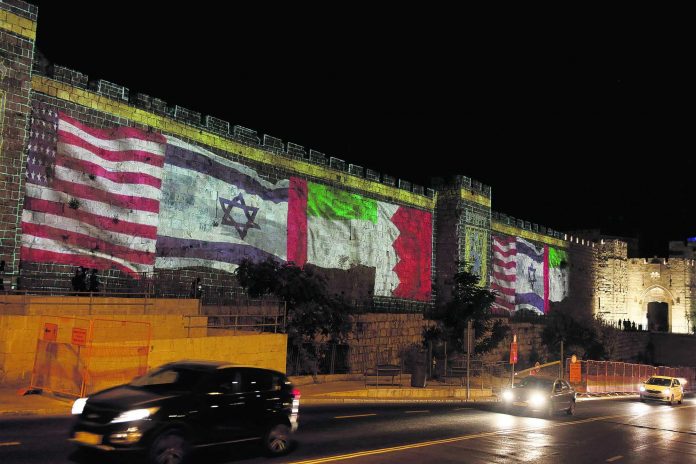Palestinian militants in the Gaza Strip fired two rockets into Israel on Tuesday, wounding two people in an attack that was apparently timed to coincide with the signing of normalization agreements between Israel and two Arab countries at the White House.
The Palestinians are opposed to the agreements with the United Arab Emirates and Bahrain, viewing them as a betrayal of their cause by the Arab countries, which agreed to recognize Israel without securing territorial concessions.
The Israeli military said two rockets were fired from Gaza and one was intercepted by air defenses. Magen David Adom, the Israeli emergency service, said it treated two people for injuries from broken glass.
The military earlier said that rocket sirens sounded in Ashdod and Ashkelon, cities in southern Israel near the Gaza Strip.
The Islamic militant group Hamas has ruled Gaza since 2007, when it seized power from the internationally-backed Palestinian Authority. Israel and Egypt have imposed a crippling blockade on the coastal territory since then.
A number of Palestinian militant groups operate in Gaza, but Israel holds Hamas responsible for all attacks and typically responds to rocket fire with airstrikes on militant targets.
Israel and Hamas have fought three wars and several smaller skirmishes since 2007. Egypt and Qatar have brokered an informal cease-fire in recent years in which Hamas has reined in rocket attacks in exchange for economic aid and a loosening of the blockade, but the arrangement has broken down on a number of occasions.
Israelis have embraced the agreements with the UAE and Bahrain, which are only the third and fourth Arab countries — after Egypt and Jordan — to recognize Israel. City Hall in Tel Aviv was lit up with the word “peace” in English, Hebrew and Arabic.
In Jerusalem, authorities projected the flags of the U.S., Israel, the UAE and Bahrain on the walls of the Old City.
The Old City, with its holy sites sacred to Jews, Christians and Muslims, is part of east Jerusalem, which Israel seized in the 1967 war and later annexed. The Palestinians want east Jerusalem to be the capital of their future state.
In the contested city, opinions were split on the meaning of the pacts.
“I think they represent peace,” said Noga Ivki, an Israeli touring the city with a group of friends.
Toni Abd al-Nour, a Palestinian resident of Jerusalem, disagreed.
“This is nothing,” he said. “You must first make peace with the Palestinians.”




















